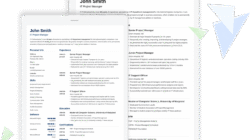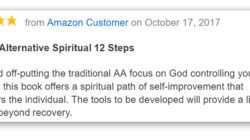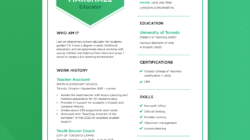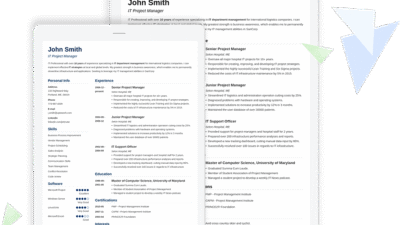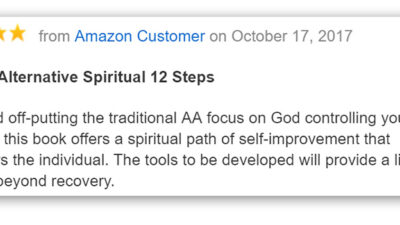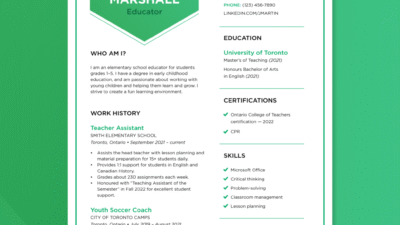Ranking cover letter tips USA is an essential theme for job seekers aiming to enhance their application prospects. Crafting a compelling cover letter can significantly impact the impression you leave on potential employers, often serving as an introductory statement that highlights your qualifications and enthusiasm for the role. As the job market becomes increasingly competitive, understanding the nuances of an effective cover letter is crucial for standing out.
In this guide, we will explore various strategies and tips to rank your cover letter effectively, ensuring it captures the attention of hiring managers. From understanding the key components of a strong cover letter to tailoring your message for specific positions, this resource will provide you with the insights needed to elevate your application.
In the rapidly evolving landscape of technology, the role of artificial intelligence (AI) has become increasingly significant. As we witness advancements in various fields, AI has emerged as a powerful tool that is reshaping industries, enhancing productivity, and fostering innovation. This article aims to explore the multifaceted impact of AI on different sectors, shedding light on its applications, challenges, and the future it holds.One of the most profound effects of AI can be seen in the healthcare sector.
Today, AI algorithms are at the forefront of medical diagnostics, improving the accuracy of disease detection and treatment planning. For instance, machine learning models analyze vast amounts of medical data, enabling healthcare providers to identify patterns and predict patient outcomes more effectively. This not only enhances the quality of care but also optimizes resource allocation within healthcare facilities. The integration of AI in healthcare systems has resulted in significant reductions in diagnostic errors and improved patient management.Moreover, AI-driven technologies are streamlining administrative processes in healthcare institutions.
Automating tasks such as scheduling appointments, billing, and maintaining patient records allows medical staff to focus more on patient care rather than administrative burdens. The implementation of AI chatbots in hospitals has further improved patient engagement by providing instant responses to inquiries, thus enhancing the overall patient experience.In the realm of education, AI is revolutionizing the way knowledge is imparted.
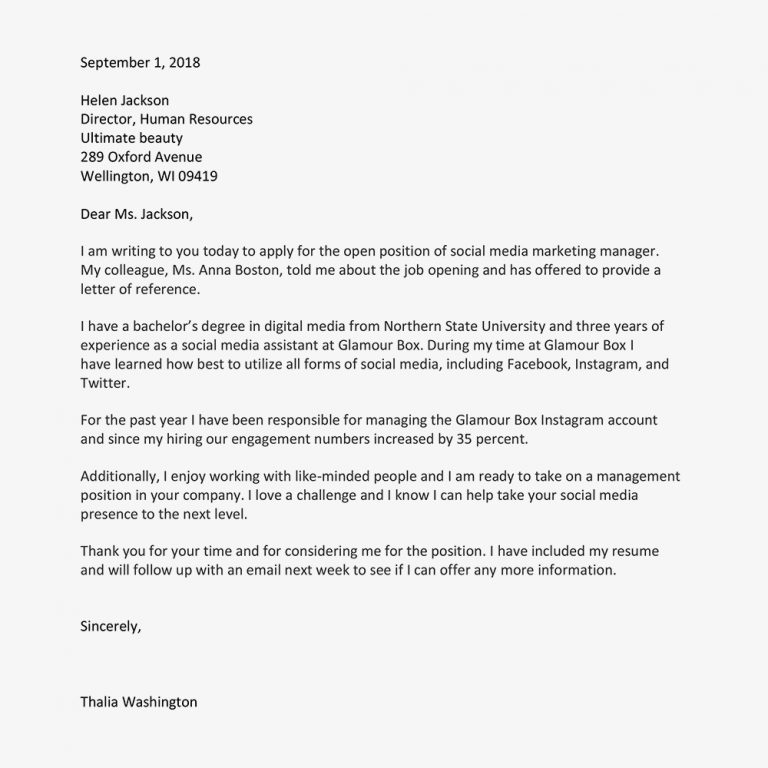
Personalized learning experiences, powered by AI, cater to individual learning styles and paces, ultimately improving student outcomes. Adaptive learning platforms assess students’ strengths and weaknesses, adjusting content delivery accordingly. This tailored approach not only fosters a deeper understanding of subjects but also motivates students to take control of their learning journeys.Additionally, AI is being utilized to analyze educational data on a larger scale, enabling institutions to identify trends and improve curricula.
Predictive analytics help educators anticipate student needs and intervene proactively, ensuring that no student falls behind. The integration of AI tools in classrooms also supports teachers by automating grading and providing insights into student performance, allowing them to focus on fostering a supportive and engaging learning environment.The manufacturing industry has also witnessed a seismic shift due to AI integration. Smart factories, characterized by interconnected machines and systems, utilize AI to enhance efficiency and productivity.
Predictive maintenance, driven by AI algorithms, minimizes downtime by anticipating equipment failures before they occur. This not only saves costs but also extends the lifespan of machinery.Furthermore, AI-powered robots are becoming increasingly common in manufacturing settings, performing tasks ranging from assembly to quality control with precision and speed. The introduction of collaborative robots, or cobots, allows for human and machine collaboration, augmenting human capabilities and promoting a safer working environment.
As a result, manufacturers are able to streamline operations, reduce waste, and deliver products to market faster.The retail sector, too, has embraced AI to enhance customer experiences and optimize operations. AI algorithms analyze consumer behavior and preferences, enabling retailers to offer personalized recommendations and targeted marketing campaigns. Machine learning models help inventory management by predicting demand and ensuring optimal stock levels, reducing costs associated with overstocking or stockouts.Moreover, AI chatbots and virtual assistants have transformed customer service in the retail industry.
These automated systems provide immediate assistance to customers, resolving inquiries and issues around the clock, thereby enhancing customer satisfaction and loyalty. As a result, retailers can engage with their customers more effectively, leading to increased sales and positive brand perception.However, despite the numerous benefits associated with AI, several challenges persist. One major concern revolves around data privacy and security. As AI systems rely on vast amounts of data to function effectively, ensuring the protection of sensitive information is paramount.
Organizations must navigate complex regulations and ethical considerations surrounding data usage to build trust with consumers.Another challenge lies in the potential for job displacement due to automation. While AI technologies can enhance efficiency, there is a valid concern that certain jobs may become obsolete as machines take over tasks traditionally performed by humans. It is crucial for societies to address this issue through workforce retraining and upskilling initiatives, ensuring that individuals are equipped for the jobs of the future.As we look ahead, the future of AI appears promising yet requires careful consideration.
The ongoing development of AI technologies will undoubtedly bring about further innovations across various sectors. However, it is essential for stakeholders, including governments, businesses, and academia, to collaborate in establishing regulations and ethical guidelines to harness the full potential of AI responsibly.In conclusion, the impact of artificial intelligence on various industries is profound and far-reaching. From healthcare to education, manufacturing to retail, AI is transforming how we operate and interact with technology.
While the benefits are numerous, addressing challenges such as data privacy and job displacement is crucial for fostering a sustainable future. As we continue to embrace the AI revolution, a collaborative approach will be vital in ensuring that these advancements lead to positive societal outcomes.
Commonly Asked Questions
What is the purpose of a cover letter?
A cover letter serves to introduce your application, highlighting your relevant experiences and skills while expressing your enthusiasm for the position.
How long should a cover letter be?

A cover letter should ideally be one page long, comprising three to four paragraphs that clearly convey your qualifications.
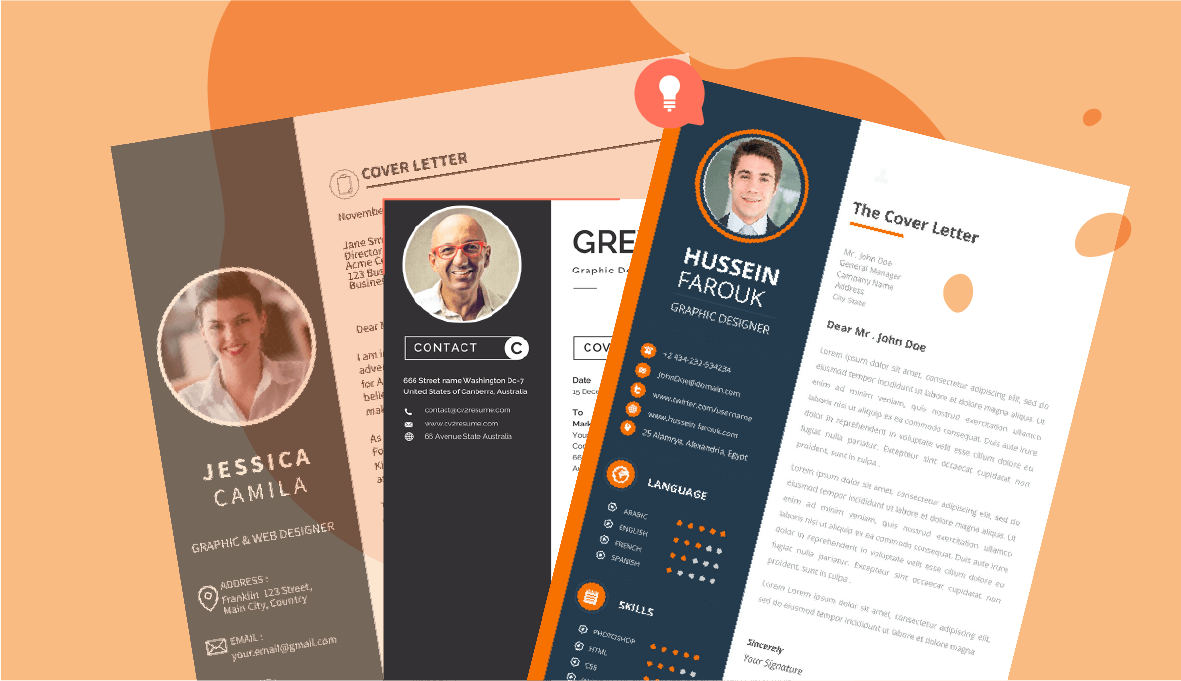
Should I customize my cover letter for each job application?
Yes, customizing your cover letter for each application is crucial, as it demonstrates your genuine interest and helps you align your skills with the job requirements.
What common mistakes should I avoid in my cover letter?
Common mistakes include using generic templates, failing to proofread, and not addressing the specific skills or experiences required for the job.
Can I use bullet points in my cover letter?
While not traditional, using bullet points can be effective to highlight key accomplishments or skills, as long as it maintains a professional format.


